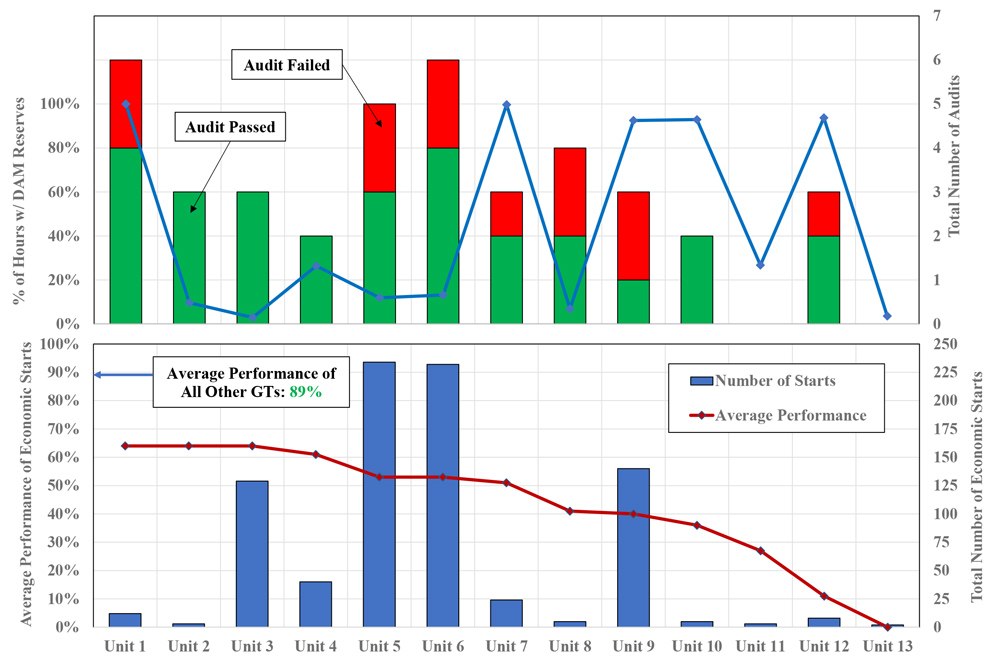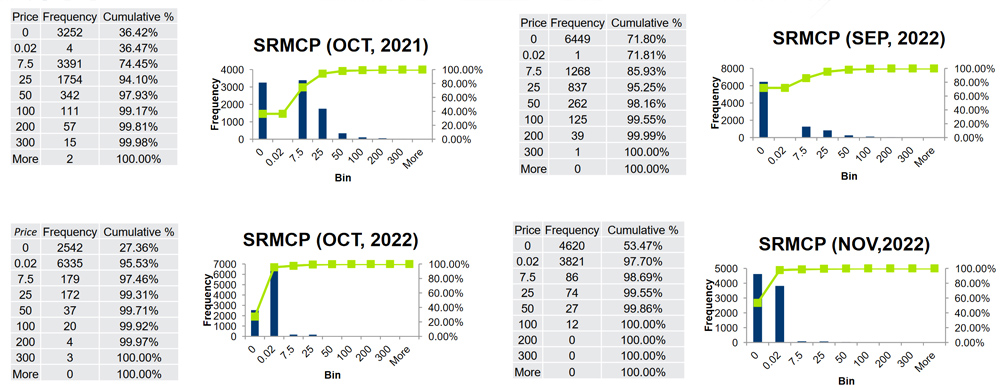2023-25 Strategic Work Plan Approved
The NERC Standards Committee on Tuesday approved its 2023-25 Strategic Work Plan, which it says reflects “the transition of the standard development process to primarily address a small number of FERC directives, emerging risks and process improvements.”
The plan has three “focus areas.”
- Process Improvement: The committee will conduct periodic reviews of existing processes to promote continuous improvement. The chair and vice chair will lead an initiative to implement the Board of Trustees’ recommendations to improve the standards development process in conjunction with NERC staff, other standing committees and the Standing Committee Coordinating Group (SCCG). In addition, the SC and the Compliance and Certification Committee (CCC) will convene a joint task force in early 2023 to evaluate the existing standards grading process and identify opportunities for improvement. The review will be in lieu of the annual standards grading exercise.
- Risk Mitigation: The SC will work with NERC staff and the SCCG to prioritize standards development projects based on reliability risk. It will continue participating in “feedback loops.”
- Standards Quality: The work plan says reliability standards “should be clearly written, effective in mitigating risk to the [bulk power system] and not unnecessarily administratively burdensome.” The SC will seek to resolve an outstanding FERC directive through Project 2020-04 (Modifications to CIP-012 regarding the availability of communication links and data communicated between bulk electric system (BES) control centers) and a FERC requirement to submit project schedules for one ongoing Critical Infrastructure Protection (CIP) project. The Project Management and Oversight Subcommittee (PMOS) and NERC staff will identify and schedule periodic reviews for SC endorsement. The PMOS will use the most recent standards grading results to prioritize and schedule by the end of the first quarter of 2023. The SC will continue to review guidelines and technical basis documents for transition to technical rationale documents while moving compliance examples to implementation guidance.
Committee Discusses Proposals to Increase ‘Agility’
The committee received a briefing on recommendations by the newly formed Standards Process Stakeholder Engagement Group (SPSEG). The group was created in May in response to a directive from the NERC board that the ERO find ways to improve its ability to address urgent reliability needs with “agility” while continuing to provide reasonable notice and opportunities for public comment, due process and balancing of interests.
The group submitted its unanimous recommendations for standards process changes to the NERC board on Oct. 10. They include changes to section 300 and Appendix 3A of the Rules of Procedure, as well as recommendations for the standing committees to improve the administration and coordination of standards development.
At the board’s Nov. 16 meeting, it approved resolutions to enact the recommendations. It directed NERC staff to review the Registered Ballot Body for “continued fairness, openness, inclusivity and balance in standards voting” and provide a report on its findings at the board’s February 2023 meeting.
The SPSEG developed several recommendations for the SC on administering the standards development process, saying the committee should:
- appoint a single drafting team to address both the standards authorization request (SAR) and standard development phases of a project;
- provide guidance to drafting teams on the role of the SAR in the standards development process;
- increase the efficiency of how it administers the SAR phase for projects eligible to be posted for informal comment or those that must be posted for formal comment;
- revise its charter and make other changes to improve efficiency; and
- revise its guidance to drafting teams regarding the development of implementation guidance and compliance elements.
The SPSEG also recommended changes to the SCCG to take advantage of cross-functional expertise and provide feedback loops. It called for revising the SAR form to provide greater clarity on the need for new projects; aiding in project prioritization; and expanding participation in the standards quality review process.
Finally, it recommended that the Reliability and Security Technical Committee increase the transparency and stakeholder awareness of its process for endorsing draft SARs.
Philip Winston, who is retired from Southern Co., questioned how the SC should respond to the recommendation that it provide drafting teams with guidance on the role of the SAR.
“In the past … we’ve been clearly told that our role is not to address any kind of technical issues,” he said. “It’s hard to provide … guidance to a drafting team having to do with what’s in a SAR to accomplish the reliability goals without getting into some technical discussion.”
NERC attorney Marisa Hecht responded that the recommendation “is less about the technical components and more about the purpose, [such as] don’t include specific language; leave possibilities open … ensuring that the SAR is a scoping document versus providing” solutions.
Hecht said the recommendations also seek to help in instances in which SAR drafting teams (SDTs) “aren’t quite sure what each section means [and] sometimes come up with different language within the same documents.”
“So I think these are all envisioned to be very procedural and not technical recommendations.”
NERC Vice President of Engineering and Standards Howard Gugel added: “There was a recognition of this group that a lot of the more recent SARs have gotten into the details about how to fix a problem and have not gone into as much: What is the issue for reliability? And why is it an issue?”
Marty Hostler, reliability compliance manager for Northern California Power Agency, questioned why SARs don’t include any cost estimates. “This is a tremendous expense to industry,” he said. “Every entity that operates a utility has to develop budgets. … They have to recover their costs.”
Gugel said the cost estimates come later.
“The SAR lays out problem; it’s not a solution space. So because of that, you don’t really have an idea about what the cost would be until you actually begin drafting the standard,” Gugel said. “That’s why during the comment period for the standard, [NERC asks], ‘Is there a more cost-effective solution than the one that’s being proposed in this language that would still meet the reliability objective?’”
Outgoing PMOS Chief Worries About ‘Churn’
Outgoing PMOS Chair Charles Yeung, famous for his multicolored spreadsheets tracking in detail every project before the ERO, shared his concerns about NERC’s growing workload as he prepared to step down from the post he has held since 2018. He will remain on the subcommittee as vice chair and be replaced by current Vice Chair Michael Brytowski of Great River Energy.
“The volume, the pace, is going to be probably one or two of the biggest concerns going forward,” Yeung said. “There’s a lot of churn — meaning postings and registrations and ballots and comments.
“The workload has grown. And the importance of the work is growing as well … things like cold weather, energy assurance, [inverter-based resources] — those are all new horizons of reliability.”

Yeung said he asked other PMOS representatives whether keeping pact was causing stress on their resources. “There was a resounding ‘yes.’”
He added, “Most PMOS reps feel like their companies are keeping pace, but there is concern about the quality of the feedback that’s going back to the Standards Committees because of the workload.”
Project 2022-04 SDT
The committee voted to endorse NERC staff’s recommendation to appoint 13 members to the SDT for Project 2022-04 (EMT Modeling). NERC received 34 nominations; two of the candidates later withdrew.
Supplemental Nominations to Project 2020-04 SDT
The committee voted to solicit additional SDT members for Project 2020-04 (Modifications to CIP-012), whose membership dropped from nine to five following four resignations.
2023 Executive Committee Nominations
The committee invited those interested in serving on the SC’s five-member Executive Committee (SCEC) to submit their biography via email to the committee secretary; Chair Amy Casuscelli, of Xcel Energy; and Vice Chair Todd Bennett, of Associated Electric Cooperative Inc., by Jan. 9.
The committee will select members for one-year terms at its Jan. 25 meeting.
2023 Standards Committee Meeting Schedule
The committee will hold eight conference call meetings in 2023 in addition to four in-person gatherings:
- March 22 in Little Rock, Ark. (SPP), 10 a.m. to 3 p.m. ET;
- July 19 in St. Paul, Minn. (MRO), 10 a.m. to 1 p.m. MT (followed by a joint meeting with the CCC at 1-4 p.m.);
- Sept. 20 in D.C. (NERC), 10 a.m. to 3 p.m. ET; and
- Dec. 13 in Atlanta (NERC), 10 a.m. to 3 p.m. ET.
Standards Committee Process Subcommittee Elects Leaders
SPP attorney Matt Harward, who assumed the chairmanship of the Standards Committee Process Subcommittee after the resignation of the previous chair in July, was elected by the committee last month to continue leading the group for 2023-24.
Troy Brumfield, regulatory compliance manager for American Transmission Co., was elected vice chair, also for a two-year term.



